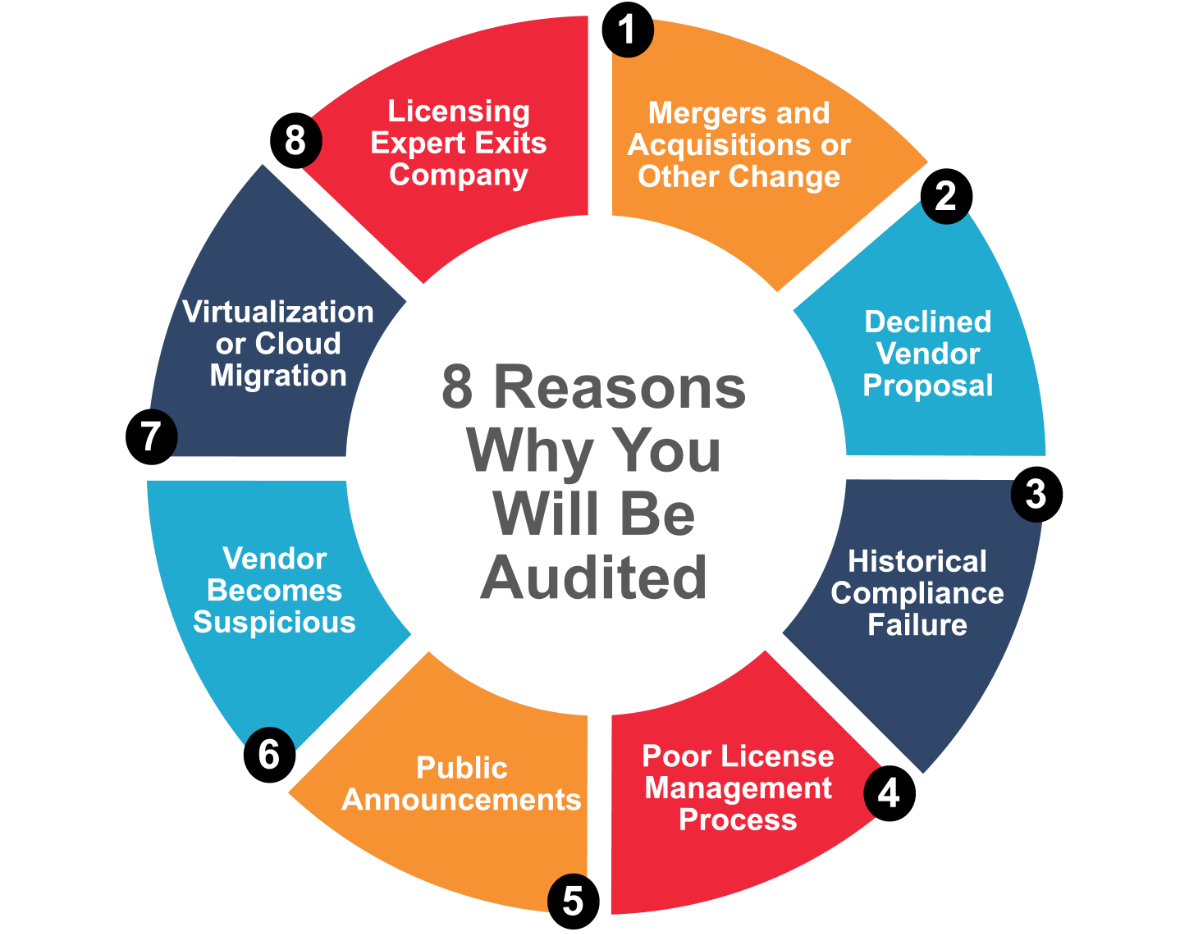1. Company Change - Expansion, Merger, Acquisition or Divestment
Public announcements about new products, divisions, locations, mergers, or other expansion quickly come to the attention of your vendor representatives. Software agreements have specific clauses and timelines related to these events. Vendors will expect new orders based on expectations determined from public information. When the orders don’t materialize, your rep will want to know why. They also know that company change often leads to confusion around deployment strategy, software ownership, and installation footprint.
So, this is a prime time to take advantage of a customer who is focused on integrating, consolidating or expanding critical business systems - and not on software asset management.
2. Declined Vendor Proposal or Renewal Agreement
Your vendor representatives report sales projections to their management based on patterns that they have come to expect. In the case of a Renewal or True-up, your vendors assume that you need to purchase additional licenses or product to remain compliant. The same is true when your vendor has provided a proposal to move to subscription, cloud, or other new products and licensing models.
A software audit notification is a common vendor response when a client declines new business offers. Missed sales targets and reduced revenue from clients is unpleasant for your sales representative and attracts attention up the sales management chain.
3. Historical Compliance Failure
Generally, if a client is making purchases that align with the vendor’s expectations, historical compliance issues are forgiven. However, BLC has seen vendors audit ‘flagged’ clients repeatedly.
For example, audits that identify compliance failures result in negotiated remedy plans. The client might agree to de-install software, downgrade versions, or upgrade to newer or higher versions. Of course, the vendor would expect to see orders placed for the purchases necessary to achieve compliance. If the purchase doesn’t occur along the agreed timeline there will be follow-up from the vendor representative.
Any indication that the audit action plan isn’t being followed is a trigger for another audit.
4. Poor or Absent License Management Process
Vendors will flag a client for future audits when they observe the absence of tools, process, team, or outside consultants to oversee software licensing and compliance. If there isn’t a visible deployment strategy, licensing expertise, or clear understanding of the deployment footprint the client is vulnerable and will face an audit. In this situation an audit will be difficult to defend internally and will end with new financial commitments.
5. Public Reports of Organizational Change or Instability
Vendor representatives pay close attention to local, national, and international news about their clients or prospects. Executive departures, layoffs, lawsuits, or other signs of instability are red flags that can trigger an audit. BLC, for example, has been hired to defend audits that were launched after the vendor learned about pending legal action regarding compliance with another technology company. Weaknesses and instability will often be exploited.
6. Your Vendor Representative Becomes Suspicious
In another case a technical support employee of a BLC client contacted a vendor for product support. His question referenced the installation of a new version of the vendor’s software. Unfortunately, the vendor was able to determine that the client didn’t have installation rights to the software version. An audit letter was received a few days after the support call was placed - even though the new version was never actually installed. Casual conversations with vendor representatives and support personnel can trigger audits. Software licensing is complicated and has terms specific to deployment in the cloud, a virtualized environment, hosting service, and other implementation nuances. When a client makes a public move toward a new strategic direction the vendor will see an opportunity to sell the appropriate licensing. If the sales don’t materialize, the vendor will likely demand a compliance audit. Rules regarding the number of processors, cores, server type, location of server, who has access to the server, where the users reside, users who are not employees - are all traps ready to capture well intended technologists. Even dynamically moving software among virtual machines can trigger non-compliance. Your vendor representative learns about company initiatives and strategy through a variety of techniques. Any technology change is an excellent reason for a vendor to launch an audit. BLC has seen some of the most extreme audit outcomes with high costs and penalties from situations where software was moved to a new server environment. You may have been safe from audits while demonstrating good command of licensing and deployment. However, the skill set and leadership that leads to a solid asset management methodology is often provided by a few key resources. When these resources change positions or leave the company, the client is instantly exposed in the eyes of the vendor.7. Technology Strategy Change - Virtualization or Cloud
8. Key Licensing or Deployment Experts Exit Your Company

